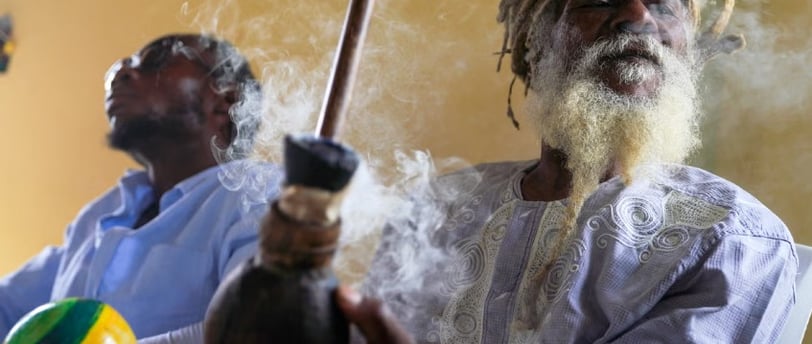Cannabis Legalization in Antigua and Barbuda
Prime Minister Gaston Brown and cannabis legalization in Antigua and Barbuda and what it means for Rasta.
Adowan Selassie
2/9/20252 min read


Antigua and Barbuda's Prime Minister Legalizes Cannabis: A Victory for Rastafari
In a groundbreaking move, Antigua and Barbuda's Prime Minister Gaston Browne has legalized cannabis for sacramental use by Rastafari, marking a significant victory for religious freedom and social justice. This progressive decision not only acknowledges the spiritual significance of cannabis for Rastafari but also signals a shift in the Caribbean's approach to marijuana legislation.
A Historic Decision for Rastafari
Prime Minister Browne's government has granted Rastafari official sacramental authorization to grow and use cannabis, making Antigua and Barbuda one of the first Caribbean nations to do so. This decision marks a significant departure from decades of persecution and imprisonment that Rastafari faced for their ritualistic use of marijuana.
Righting Historical Wrongs
The Prime Minister's actions go beyond mere policy change; they represent an attempt to address historical injustices. Browne stated, "We believe that we have to provide a space for everyone at the table, irrespective of their religion". This inclusive approach aims to acknowledge the constitutional right of Rastafari to worship and use cannabis as a sacrament.
Impact on the Rastafari Community
For Rastafari, this new freedom is transformative. Ras Tashi, a member of the Ras Freeman Foundation, expressed, "We're more free now". The ability to grow and use cannabis without fear of legal repercussions is not just about personal liberty; it's about cultural and spiritual recognition.
Broader Cannabis Reform
Alongside religious protections, Antigua and Barbuda have also decriminalized cannabis for the general public. Adults can now grow up to four plants per household and possess up to 15 grams without legal consequences. This balanced approach aims to respect both religious freedoms and changing public attitudes towards cannabis.
Setting a Global Example
Antigua and Barbuda's comprehensive initiative could serve as a model for other nations. Charles Price, a professor at Temple University, suggests that these islands have become "test cases for the rest of the Caribbean". The government's actions may inspire similar reforms across the region and beyond.
Challenges and Opposition
Despite the progressive stance, the changes have faced some opposition from politicians and Christian leaders in the socially conservative Caribbean. The Antigua Barbuda Evangelical Alliance has expressed concerns about public cannabis use in sacred spaces. Balancing these concerns with the new freedoms will be an ongoing challenge.
Looking Ahead
As Antigua and Barbuda navigate this new terrain, the world watches. The success of this policy could pave the way for more inclusive and progressive cannabis legislation globally. For Rastafari, it's a long-awaited recognition of their spiritual practices and a step towards healing historical wounds.Prime Minister Browne's actions reflect a commitment to religious freedom, social justice, and progressive drug policy. As the nation moves forward, the impact of these changes will likely resonate far beyond its shores, potentially influencing cannabis reform and religious rights discussions worldwide.
Unity
Empowering Rastafari through community and collaboration.
Culture
Growth
info@rastafariworld.org
Ghana:
Antigua & Barbuda:
USVI:
Jamaica:
Trinidad & Tobago:
United States:
United Kingdom:
Ras Tafari World © 2025. All rights reserved.
